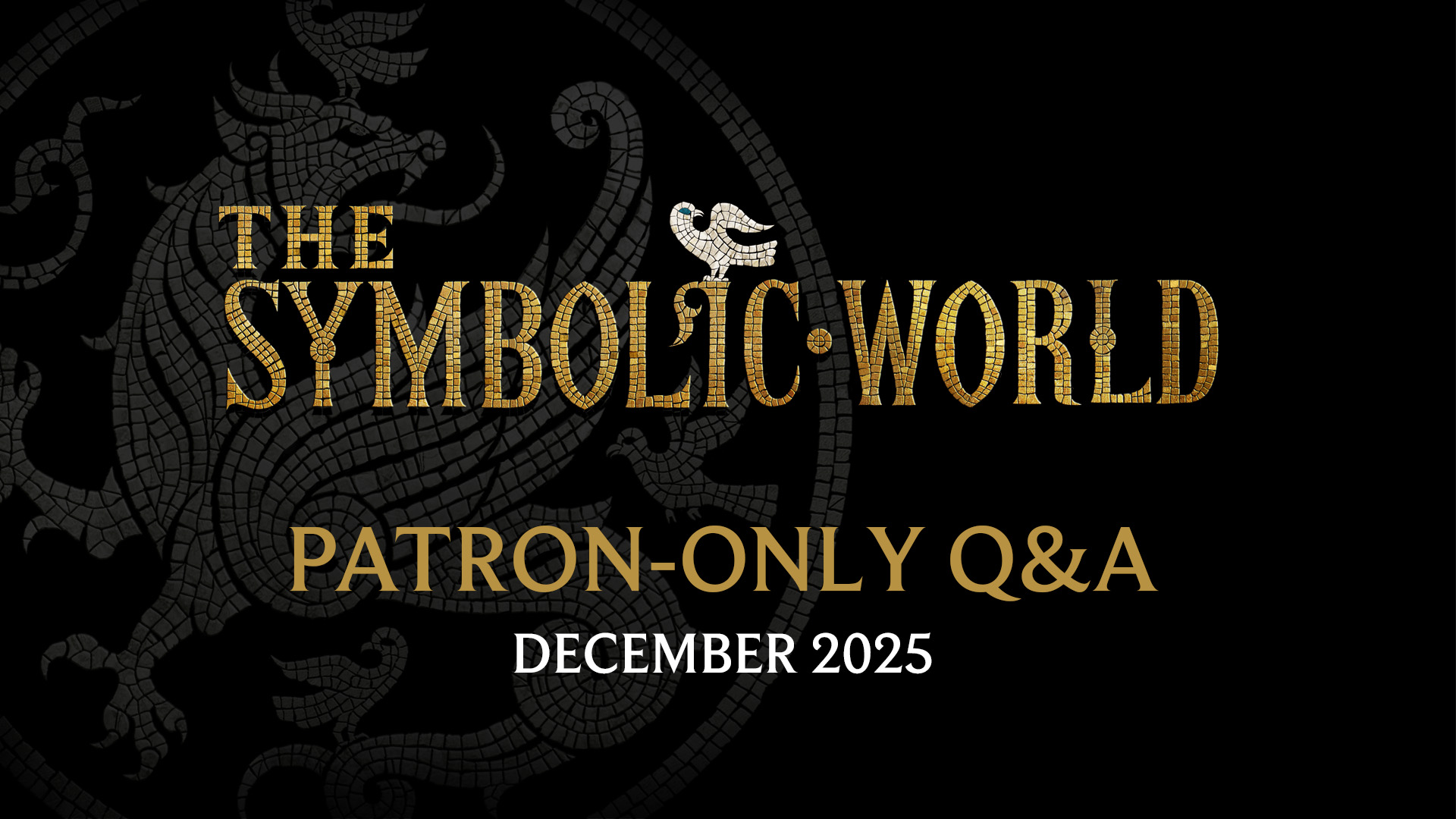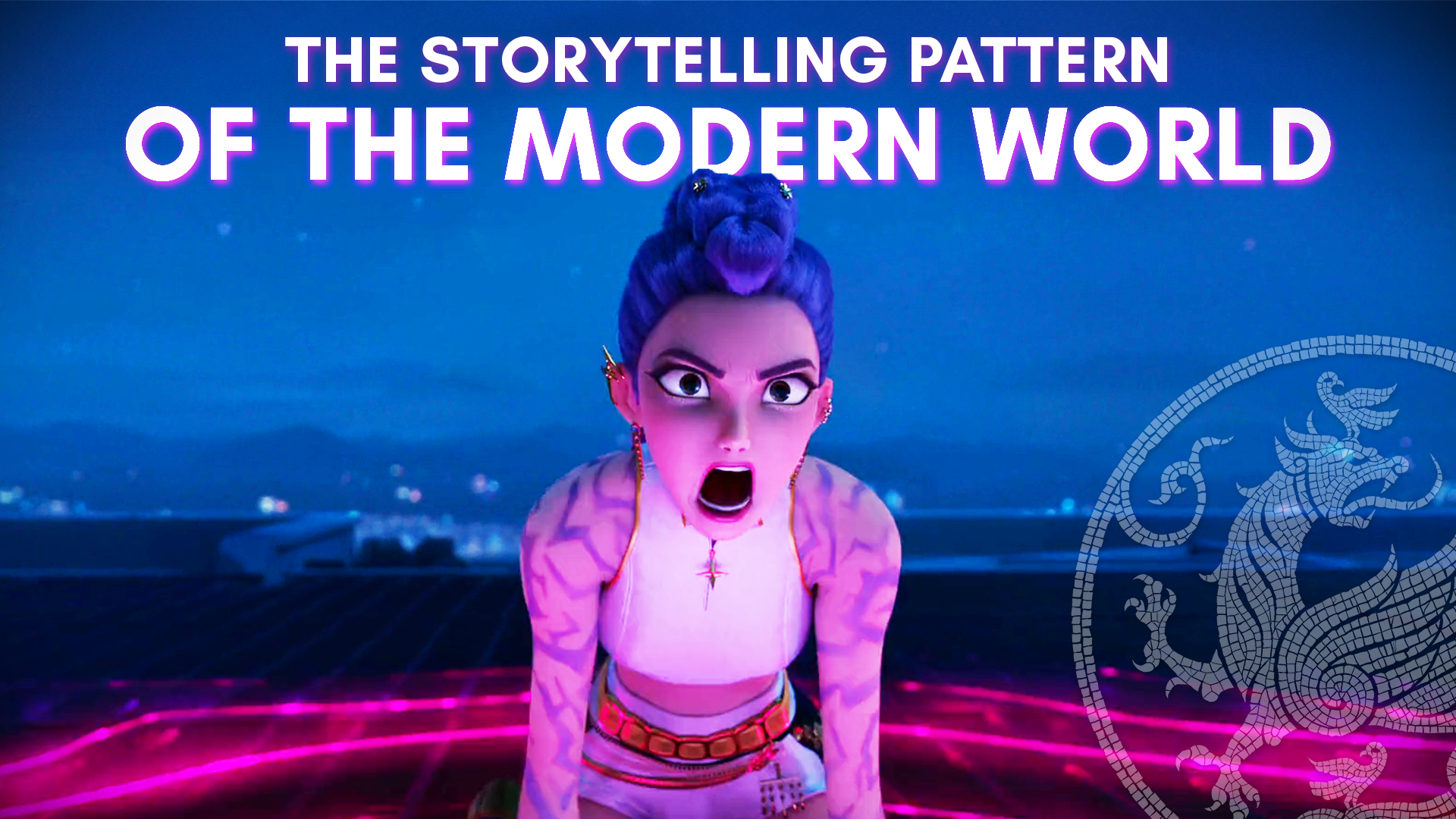On Lot’s Life after Sodom and the Dangers of Symbolic Thinking

The Lord begins His commandments to Moses with “I am the Lord thy God, which have brought thee out of the land of Egypt, out of the house of bondage. Thou shalt have no other gods before me” (Ex. 20:2–3). Ergo the most foundational, most important distinction one should make in life is not between the one and the many, on the basis of which symbolic thinking is generated, nor between being and non-being, upon which the highest philosophy is based. Rather, our first priority is to distinguish between created and Uncreated, so as to worship God our Creator and have no other gods before Him, to avoid being like the men the Apostle Paul said “changed the truth of God into a lie, and worshiped and served the creature more than the Creator” (Rom. 1:25).
When engaged in symbolic contemplation, one seeks patterns. One seeks hierarchical structures. Ultimately one looks to learn the inner essences of the created things around us and within us — that is, one seeks to perceive and apprehend creation the way God does. These inner essences of created things are called in Greek logoi (plural for logos), and they can be understood as God’s pre-eternal intentions for creation.1 God’s foreknowledge of creation precedes all time and eternity. His memory likewise circumscribes all creation, but that’s just another way of saying the same thing. To see creation from the perspective of this foreknowledge or this memory, a process of deification is already necessary. The logoi are pre-eternal, and hence divine; they are divine energies. To see like God, one must be God, by grace if not by nature.
The patristic tradition of the Church identifies this part of theosis, whereby are perceived the logoi in creation, as an intermediate step.2 After it must come the perfection of divine worship, when all notion of created things, even God’s foreknowledge and memory of them, fall away, and one is embraced by the divinity that exists beyond just the logoi (merely a subset of the energies of God). But before the perception of the logoi must come purification of body and soul though the acquisition of the virtues. This is completely necessary. In order to see the divine patterns of life, it is not enough to switch out scientific knowledge for symbolic knowledge; one must change the way one knows. This transformation can only occur through the loosing of one’s attachment to created things as expressed in the passions of desire, anger, and ignorance. As one cycles through phases of purification, one first looses gross material attachments, and eventually subtle intellectual attachments as well. There are logoi, principles in the mind of God, and then there are noeta: ideas, thoughts, perceptions — products of our minds. We can never afford to be attached to our noeta, our ideas or perceptions, as if they were divine. They are not life-giving principles. We should no more wish to worship them than angels or principalities, whose nature may be divinized, but is not divinizing.
It’s in regard to this topic that I want to lay out an anagogic interpretation of the story of Lot. No doubt due to the influence of his uncle Abraham, Lot was a man with a degree of fundamental decency, on account of which he and his family were forewarned of their city Sodom’s imminent destruction and allowed to escape (see Gen. 19). With his wife he had two daughters, and surely they were blessings from God. I would liken the good ideas that we have, thoughts in accord with nature that come from our mind, to such daughters. They are created things, but they are blessings from God. When we wed them to acts of faith, our ideas can be very fruitful in the virtues, like daughters that bear many grandchildren. Unfortunately, Lot did not find faithful suitors for his daughters. The two Sodomite men betrothed to them laughed in disbelief when Lot warned them of the coming destruction, and they did not flee to safety with Lot’s family. Then, during the flight, Lot’s wife did not heed the command not to look back to their sinful home city and was turned into a pillar of salt. Lot’s family line was now in grave danger. Worse, traumatized by the Sodomites’ wicked treatment of him, Lot feared to live among men in the little town, Zoar, where the Lord allowed him to go. Instead, faithlessly relying on himself, he retreated to a cave in a mountain with his daughters.
For symbolic thinkers chasing down the logoi of created things, it can become more and more tempting the further along one progresses to be enamored with one’s ideas. When you’re actively trying to conform your noeta to the logoi, it becomes harder the more successful one is to tell the difference. But tell the difference one must. The logoi preexist creation and are divine, while the noeta are created things and works of our own minds. You cannot risk worshiping created things rather than the Creator. You cannot risk looking up and thinking Holy Wisdom is making love to you, when in fact you have merely been intoxicated by your own ideas, tricked by daughters whose purpose is to procreate but for whom you have not provided faithful suitors. This happens very often. Abrahams are rare; Lots are common.
The children that result from such doubly incestuous unions are Moab and Ben-Ammi, patriarchs of the Moabites and Ammonites. These dual tribes are like the philosophies, or ideologies, or physical theories, or worldviews, or systems of knowledge that are begotten when we make love to our own perceptions (and which so often come in pairs due to their inherent polarization). During their conquest of the Holy Land, the Israelites were commanded not to be at enmity or make war with the Moabites or Ammonites because their land was given as an inheritance to the sons of Lot (cf. Deut. 2:17–19). Likewise the philosophies of men carry within them reflections of the natural law and are not to be abominated. Once settled in the Holy Land, Israel could live in peace with their Moabite and Ammonite neighbors, provided they pay tribute.
However, throughout history these tribes, like purveyors of worldly philosophies, often rebelled and were a nuisance to Israel, their men causing bloodshed through war and their women diluting the faith through seduction. When we make love to our perceptions and adhere to the ideologies that result, not only will we find ourselves on the wrong side of the Jordan, separate from the people of Israel with whom “God prevails”, but we will also, even despite ourselves, frequently be an affliction to God’s people, or stumbling blocks seducing them from the truth. Of course, “It is impossible but that offenses will come, but woe unto him through whom they come” (Luke 17:1).
Accordingly, the end of the Moabites and Ammonites is not good. Isaiah upbraids the Moabites for their insolence against Jerusalem, predicting their destruction by Arabs. “The heart of the land of Moab cries aloud in itself as far as Zoar” (Is. 15:5) — as if ruing the very origin of their existence. Lot was originally called to safety not in Zoar, the small town near Sodom, but up into the mountains. Despite that God had just saved his life from Sodom, Lot irrationally did not trust God to preserve his life in the highland wilderness. He asked instead to be given refuge at Zoar, not at all a big city of sin like Sodom or Gomorrah, but not the symbolical, paradisal mountains which God had prepared for him either. God saw his weakness and graciously provided refuge for Lot in Zoar. Surely God knew this already when commanding him to go to the mountains, that he would not be strong enough in faith to go; yet it was important that Lot be made aware of the weakness himself.
It was to no avail. Weak in all kinds of faith, Lot did not last long before leaving the community at Zoar. All his neighbors in Sodom, recall, had surrounded his home and threatened to break in, rape, and murder him, his family, and his guests, the latter of whom he righteously insisted on protecting. Then he was told his entire city, the world as he knew it, would presently be destroyed and he had to flee immediately. The ensuing panic that gripped him and his family “threw them into confusion” such that they couldn’t follow the simple direction to run for their lives and had to be led out and away from Sodom forcibly by hand, the Lord being merciful to them. Then his wife, his potential for future growth, as though mimicking his weakness, could not escape the gravity of temptation and looked back, returning to Sodom with her attention and immediately perishing as if she hadn’t escaped at all.
Lot left Zoar. He could not bear to trust any neighbors, not after Sodom. He took his daughters and fled to the mountains of symbolic thinking where he was originally called, but now he was entering this space not in obedience but with lack of faith in anyone but himself. Pride led him up the mountain, yet he hid in a cave as if mocking humility. That is where he, alone and unaware of himself, was violated by his own thoughts.
The pattern I’m laying out by retelling this narrative — I’m not sure how much interpretation to put on top of it. I am writing out of immediate inspiration by the recent Symbolic Life conversation between JP Marceau and Jonathan Pageau, but I’m also being fairly autobiographical, not in a straightforward way but typologically. I would think other readers would be able to trace patterns of this story in their lives, too. There are many more ways I could particularize the interpretation, but as I did so I would also be narrowing its potential applications. So I want to say just one more thing about Lot and leave it at that.
I imagine a situation where a man who met Lot in Zoar shows some concern for him and visits his cave up in the mountains every so often. The Zoarite offers Lot some human engagement knowing that is what he needs, but whenever they talk, Lot just goes on and on about his daughters: how much he loves them, how great they are, how important they are. Lot looks for confirmation from the Zoarite about the supreme value of his daughters, and what is the Zoarite to say? “My dear neighbor, I’m sure your daughters are great, real blessings from God as you say. I’ve got nothing against your daughters. But Lot, c’mon, you’re living with them all alone in a cave… Whose kids are those?”
Do not make love to your ideas. Do not put yourself in a position to be alone with your ideas. I mean, plenty of people have and survived to tell about it, but it’s not advisable. Either go to a mountain where you can divest yourself of your ideas, or find a decent community where you can wed your ideas to acts of faith so that together they may breed virtue. Noeta are never to be prized more than logoi, not if one is to keep the first and foremost commandment to worship God above all created things. Deification cannot work if that which deifies and that which is deified are not identified separately at all times.
In that spirit, something must also be said about the types of patterns in which a symbolic thinker traffics. Tracing the patterns of Lot’s story, for example — the meaning of the daughters, the meaning of the mountain, the meaning of Zoar — is part of how symbolic thinking works. But not all patterns are of the same value. Not every pattern you observe in creation is God’s pre-eternal intentions for creation. This is because of sin. Not only are there logoi, patterns of creation, but there are also patterns of corruption. Because the garden of the world is designed according to a certain order, when the free will–endowed creatures given to rule over it tear it apart, it cleaves along lines that themselves have a certain order to them, a certain pattern. Corruption may have been foreknown by God, but it was never intended by God. These patterns are not the logoi. Seeing them does not give you life, nor is the ability to trace them the point of your life.
Because it is a corrupt thing to worship one’s ideas, when doing so, one’s mind often can be found orbiting not the patterns of creation, but the patterns of corruption — the content proper to one’s corrupt form of noesis. This is a sick cycle. It can be made healthy, however, if one incorporates perception of the patterns of corruption into the purification necessary to be illumined by the logoi. This happens when, say, from the life of Lot after Sodom you gain insight into your corrupt pathways and repent of them; when you see your mind captive to the ideology of either Moab or Ammon, and like Ruth the grandmother of David (a Moabite), commit yourself to Israel instead. When you purify the mind of its polarized ways of thinking based on the pattern of the passions, you become illumined with the perception of things as they are, as God sees them. You see the logoi, and how they are all recapitulated in the Logos, and the Logos becomes incarnate in you, even as you are made part of the body of Christ.
But it all starts with purification of the passions. If one stays in the sick cycle, ever circling with the mind the patterns of corruption, like anti-logoi, one will find oneself easily engrafted on the body of the anti-Logos, in whom all corruption is recapitulated. Likewise if one ascends the mountain of symbolism, chasing the mind of God without purification, in disobedience, with mistrust and vanity, one will breed corruption in a different way, in Lot’s way. The prophet Zephaniah warns, channeling the voice of God: “‘I have heard the insults of Moab and the cruel acts of the people of Ammon, by which they have berated My people and exalted themselves against My borders. Therefore, as I live,’ says the Lord of hosts, the God of Israel, ‘Moab shall be like Sodom, and the sons of Ammon like Gomorrah…. This is their punishment because they have reproached and exalted themselves against the Lord Almighty’” (Zeph. 2:8–10).
Linked Articles & Posts
Linked Premium Articles & Posts
- For an introduction, see Lars Thunberg, Microcosm and Mediator: The Theological Anthropology of Maximus the Confessor, Chapter Two: The Cosmological Context (Open Court Publishing Company, 1994), especially pp. 72ff.
- For an introduction, see ibid., Chapter Six: Performing the Task of Mediation.
MEMBERSHIP
Join our Symbolic World community today and enjoy free access to community forums, premium content, and exclusive offers.



.svg)



.svg.png)







Comments